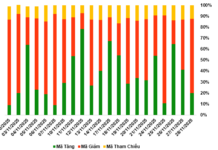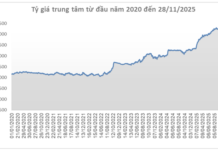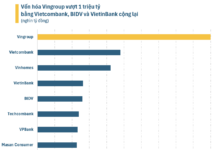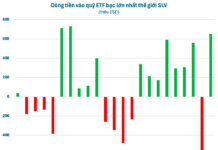
On April 16th morning, the Vietnam Bank Association (VNBA) collaborated with the International Finance Corporation (IFC) to host a workshop on “Improving the Soundness of Consumer Lending and Regulations, and Debt Collection Practices”.
At the workshop, Dr. Nguyen Quoc Hung, Vice Chairman and Secretary General of Vietnam Bank Association, stated that consumer finance lending remains a pressing issue. Statistics up to the end of 2023 indicated that the proportion of outstanding consumer credit accounted for approximately 21% of the total outstanding credit for the economy, reaching nearly 2.9 million billion VND, a relatively large figure.
Currently, the entire system has 15 consumer finance companies licensed and operating by the State Bank of Vietnam. As of the end of February 2024, the outstanding consumer loans of finance companies amounted to approximately 138.8 trillion VND, accounting for about 5% of the total outstanding consumer credit in the system.
As of the end of February 2024, the consumer credit growth rate was negative (decreasing by 2.5% compared to December 31, 2023). The reason is that the demand for consumer credit has decreased in the context of economic growth difficulties affecting the income of individuals and households, leading to increased demand for savings as a precaution for the future and reduced demand for bank credit loans to expand spending.
In addition, the recent surge in lending via apps with relaxed lending terms, simple and quick procedures, easy access, and no need for collateral has attracted people to borrow through apps instead of banks.
It’s worth noting that the non-performing loan ratio of consumer loans for living expenses reached 3.8% at the end of 2023 and has now risen to over 4%. Notably, bad debts at financial companies, although slightly decreased from 15% at the end of 2023 to around 14.63% today, remain at an alarming level.
The increase in bad debts, apart from objective factors related to the general economic difficulties, also includes subjective factors such as customers deliberately defaulting on their loans. “Many financial companies are facing difficulties, even losses, due to the high provision for bad debt risks. Debt collection is also very difficult because customers intentionally default on their loans, establish “debt avoidance” groups on social networks, oppose and slander debt collectors, negatively impacting the image and reputation of banks and financial companies, and significantly affecting the morale of debt collectors,” Dr. Nguyen Quoc Hung emphasized.
Faced with the challenges in consumer loan debt collection, the Banking Association has sent numerous documents to relevant authorities, requesting strict measures to address the issue of illegal credit, “debt avoidance” groups, etc. While “debt avoidance” groups on social networks have been partially removed, a number of customers continue to intentionally default on their loans.
Dr. Nguyen Quoc Hung expressed his hope that in the near future, the integration of electronic identification would facilitate credit scoring for individuals, contributing to raising awareness and responsibility among citizens. Notably, the legal framework for debt collection also needs to be完善d as soon as possible to make debt collection activities more efficient and effective.
During the workshop, several international experts analyzed the challenges in regulations, enforcement, and debt collection practices in Vietnam and shared international experiences. They proposed opening up the consumer bad debt market. Opening up the bad debt market would attract more private sector investment in Vietnam and contribute to a sound financial system that would enable financial companies to withstand risks better.
In addition, core issues related to management and enforcement measures to prevent illegal debt collection, as well as the role of a code of conduct for responsible debt collection behavior to promote market standards and good practices, were thoroughly analyzed by the experts.





































